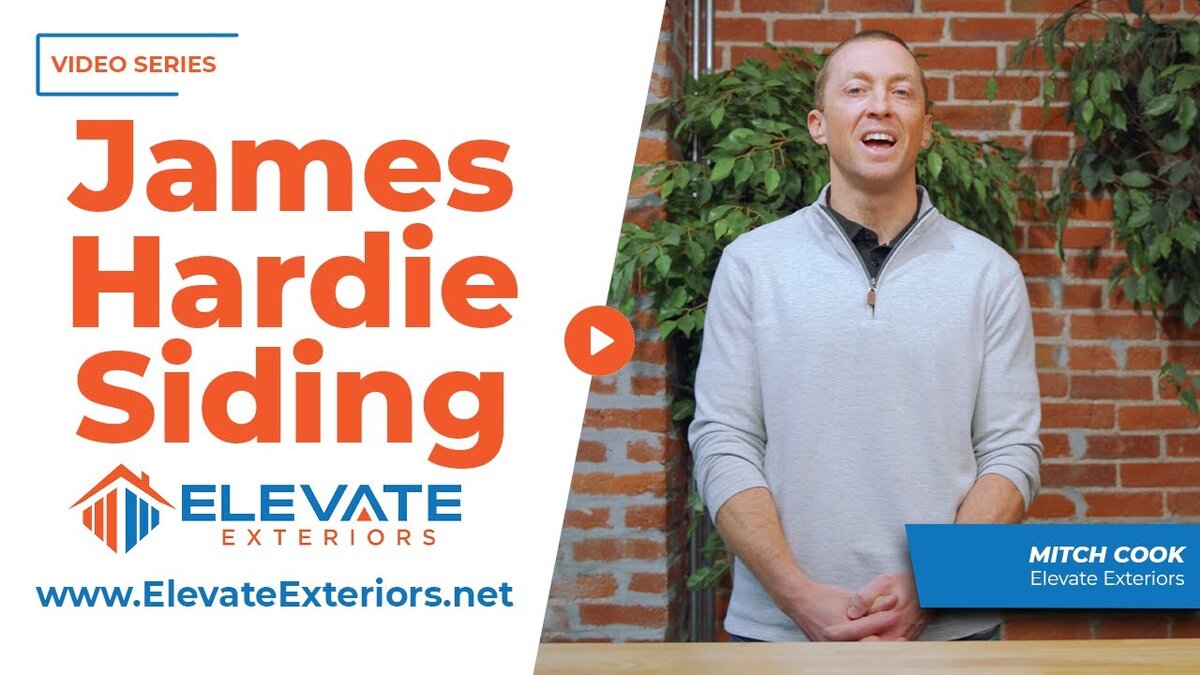Are you tired of dealing with woodpeckers damaging your home’s siding? In the Pacific Northwest, where these birds are common, homes with wood-based siding often become their favorite target for pecking, nesting, and food hunting. Over time, this can lead to unsightly holes, costly repairs, and ongoing frustration. At Elevate Exteriors, we’ve helped countless homeowners protect their homes from woodpecker damage by installing James Hardie siding—a durable, fiber cement solution that these birds simply can’t penetrate.
Why Woodpeckers Target Wood Siding
Understanding why woodpeckers damage homes can help homeowners find the right solution. There are a few key reasons why these birds peck at wood siding:
- Searching for Insects: Woodpeckers are naturally drawn to wooden homes because they provide an easy food source. If moisture has led to insect infestations inside your wood siding, woodpeckers will peck through to get to them.
- Building Nests: Woodpeckers create cavities in trees to make their homes, and wooden siding provides the same opportunity. If they find a suitable spot, they’ll keep returning and expand their nesting area.
- Marking Territory: These birds also peck on hard surfaces to communicate and establish their territory, which means your home may become part of their routine.
If your house has wood siding, it’s almost impossible to prevent woodpeckers from causing damage. The best way to protect your home is by switching to a material they have no interest in—fiber cement siding.
How James Hardie Siding Solves the Problem
When homeowners tell us about woodpecker damage, we immediately recommend James Hardie Plank siding. Here’s why:
- Made from Fiber Cement, Not Wood: Unlike traditional wood siding, James Hardie siding is primarily made from cement, sand, and cellulose fibers. Since it contains no edible material, woodpeckers have no reason to peck at it.
- Extremely Durable: Hardie Plank siding is designed to withstand all kinds of environmental factors, from extreme weather to impact damage. Woodpeckers simply can’t break through it.
- Moisture Resistance: In the Pacific Northwest, where moisture is a major concern, fiber cement siding helps prevent water infiltration. This also reduces the risk of attracting insects like termites, which woodpeckers feed on.
If you’re tired of dealing with the constant cycle of woodpecker damage and repairs, switching to James Hardie siding is a long-term solution.
Protecting Your Home from Termites & Moisture
While woodpeckers are a significant concern, termite infestations are another major issue in the Pacific Northwest. Because the region has high moisture levels, wooden homes often become breeding grounds for termites. When moisture gets trapped in wood siding, it creates the perfect conditions for these pests to thrive.
With James Hardie siding, you get the added benefit of termite resistance. Because fiber cement does not contain wood, termites have no interest in it. Additionally, Hardie Plank siding allows for better airflow, preventing moisture buildup in the walls. This is critical for homes in humid or rainy climates, as it helps prevent rot, mold, and pest infestations.
Why We Recommend James Hardie Siding
At Elevate Exteriors, we’ve been recommending James Hardie siding for years because of its durability and performance. We’ve seen firsthand how this product helps homeowners:
- Eliminate Woodpecker Damage: Once installed, homeowners no longer deal with birds pecking holes in their siding.
- Reduce Termite Problems: Since Hardie Plank doesn’t contain wood, termites don’t see it as a food source.
- Improve Home Protection: Fiber cement siding, when paired with proper weather-resistant underlayment, provides superior protection against moisture and the elements.
When we install James Hardie siding, we also ensure that the right weather-resistant barrier is in place to enhance durability. This combination of fiber cement siding and proper underlayment creates a home exterior that is built to last.
In Summary
If woodpeckers are causing damage to your home, switching to James Hardie siding is the best solution. Not only does fiber cement siding stop woodpeckers from pecking through your walls, but it also provides protection against termites, moisture, and rot.
At Elevate Exteriors, we specialize in James Hardie siding installations and can help you make the switch to a durable, pest-resistant home exterior. Contact us today to learn more about how we can protect your home from woodpeckers and other damage.




